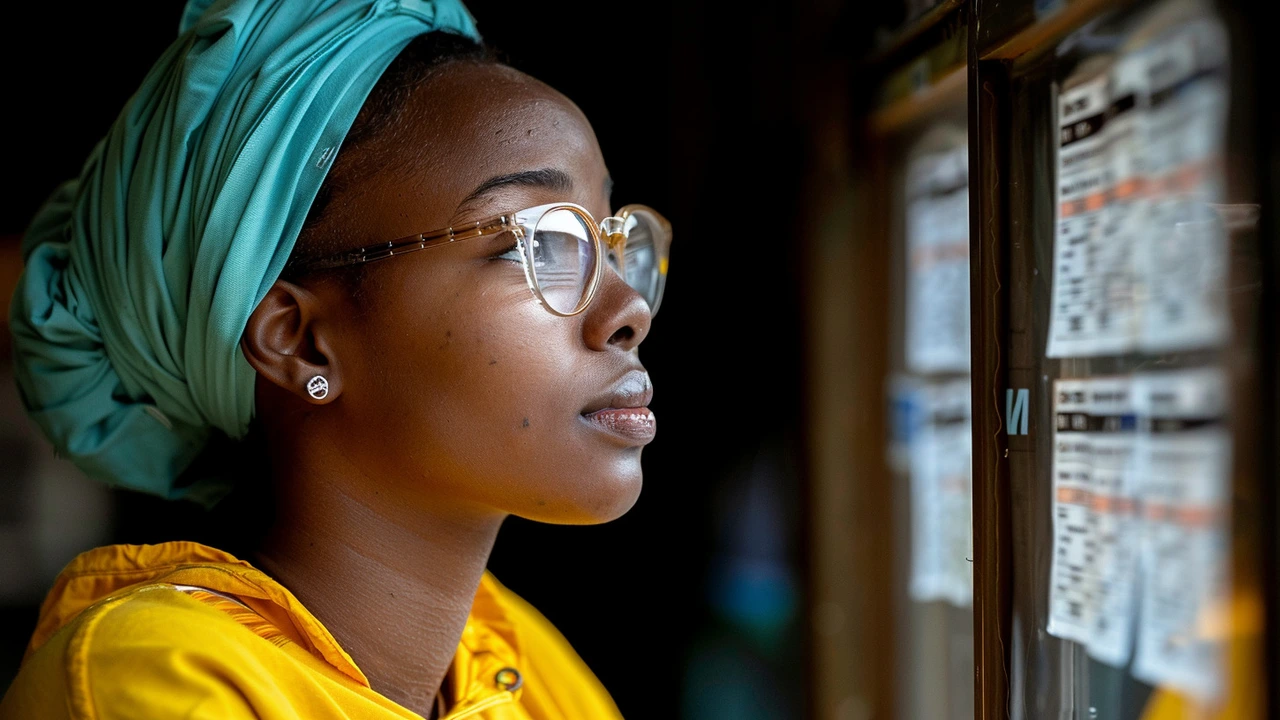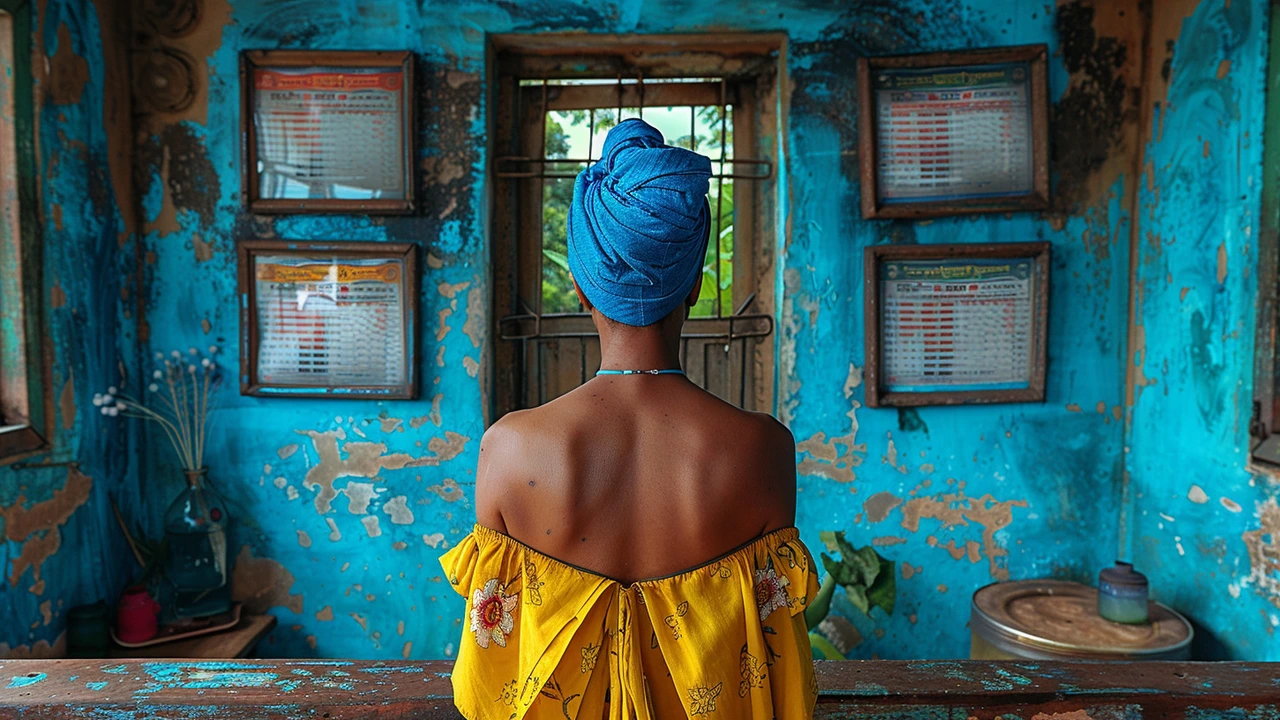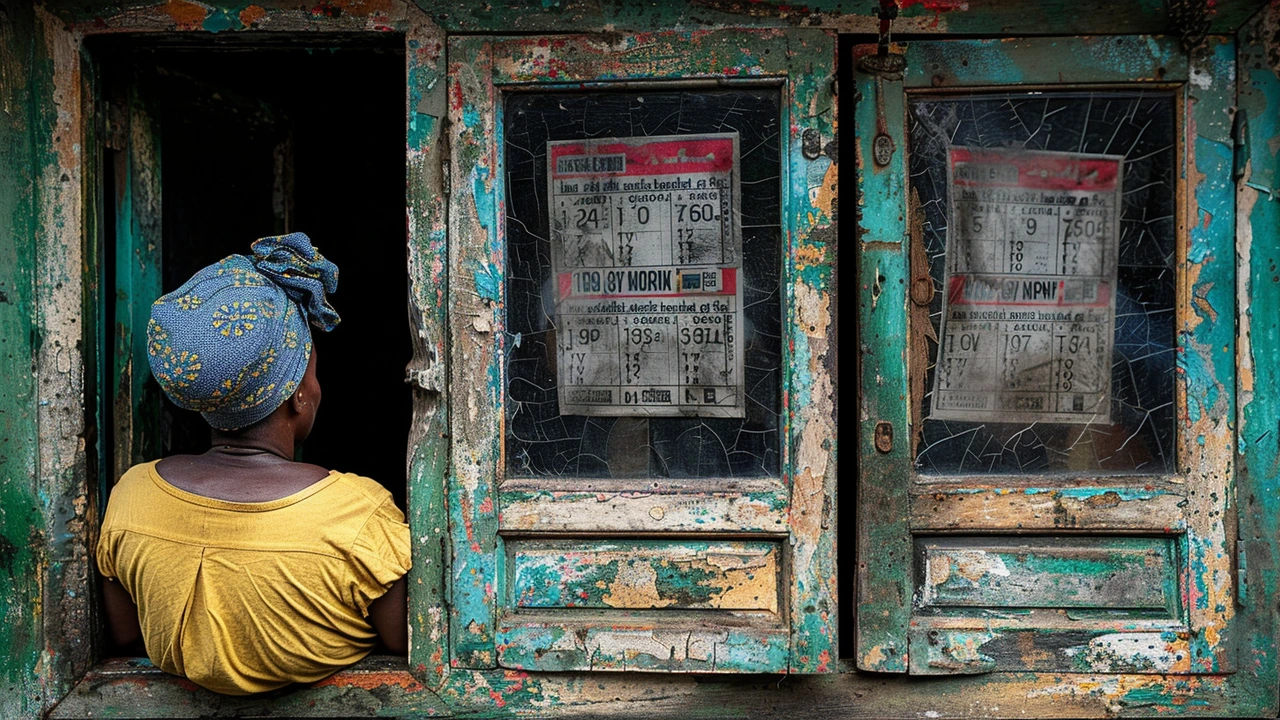Early Voting Begins: A Critical Moment for South Africa
South Africa has entered a pivotal moment in its political history as early voting commenced for an election that could potentially dismantle the African National Congress's (ANC) 30-year dominance. Early voting is available for approximately 1.6 million out of the 27.6 million-strong electorate, including essential workers and individuals with special needs who might be unable to vote on the official polling day. These votes are a precursor to the main election event, set to take place on Wednesday, marking South Africa’s sixth general election since the historic turn to democracy in 1994.
The significance of this election cannot be overstated. For the first time in decades, opinion polls indicate the ANC might lose its absolute majority. Current projections suggest that the ANC could secure only 40% of the vote, a significant drop from the 57.5% share they held in 2019. This potential decrease in support poses a serious threat to their dominance and could force the ANC into a coalition government, which would be an unprecedented shift in South African politics.
Coalition Government: A New Era
If the predictions hold true and the ANC fails to maintain a clear majority, the party will need to form alliances with rival political entities. This scenario could significantly alter the political landscape of South Africa. A coalition government would not only challenge the ANC's grip on power but also expose President Cyril Ramaphosa to possible leadership challenges. Ramaphosa, who took office in 2018, has faced criticism for his handling of various national issues, including the economy, unemployment, and corruption scandals within the party.
The prospect of a coalition government brings a host of uncertainties but also a glimmer of hope for more collaborative governance. It could introduce new dynamics into the way policies are formulated and implemented, potentially leading to more balanced and inclusive decision-making processes. The Democratic Alliance (DA), the Inkatha Freedom Party (IFP), and the Economic Freedom Fighters (EFF) are the main opposition parties gearing up for this potential power shift. Each party has spent the final weekend of the campaign pushing their agendas and trying to sway undecided voters.

Key Issues: What’s at Stake?
The primary issues dominating the campaign include poverty, unemployment, and the ongoing electricity crisis. These are not just talking points but fundamental problems affecting millions of South Africans. Leaders from all major parties have made pledges to address these concerns, each offering different solutions to the electorate. The ANC has promised to continue its efforts to improve social welfare programs and job creation initiatives. Meanwhile, the DA has focused on economic reforms and anti-corruption measures, while the EFF has pushed for more radical economic changes, including land redistribution.
The electricity crisis, in particular, has been a focal point. South Africa's energy troubles are far from over, with regular blackouts disrupting daily life and the economy. The ANC has faced heavy criticism for its handling of Eskom, the state-owned power utility. Opposition parties have used this issue to question the party's competence and promise more effective solutions should they come to power.
The Role of Early Voting
Early voting is a crucial component of this election, allowing for a more inclusive and participatory democratic process. Election agents have been dispatched to visit 624,000 people with mobility issues at their homes, ensuring that those who are less able to travel can still have their say. Essential workers, who might be preoccupied on the main polling day, can also vote over these two days. This process ensures that every segment of the population is given an opportunity to participate in this critical election.
The relevance of early voting extends beyond just convenience; it reflects a more inclusive approach to governance that seeks to accommodate all citizens, regardless of their physical or occupational constraints. This inclusion is particularly important in a country like South Africa, where historical inequalities still cast a long shadow. The engagement of voters who might otherwise be marginalized adds a layer of legitimacy to the election results.

Final Campaign Push
The weekend leading up to early voting saw a final flurry of campaigning from the four main political parties. Each party held rallies, press conferences, and community events to drum up last-minute support. The ANC focused on its legacy of struggle against apartheid and its role in achieving the democratic freedoms South Africans enjoy today. However, they had to balance this historical narrative with promises of tangible improvements in the present, addressing the criticisms about their performance in governance.
The Democratic Alliance, on the other hand, emphasized its record in provinces where it has been in power, particularly highlighting successes in economic management and public services. The EFF continued its push for radical economic transformation, appealing particularly to younger voters frustrated by high unemployment rates and economic stagnation. Meanwhile, the IFP aimed to consolidate its base in KwaZulu-Natal while making inroads in other provinces.
A Historic Turning Point?
South Africa stands at a historic turning point. If the ANC loses its absolute majority, it would be a significant shift in the country's political landscape. Such an outcome could pave the way for new forms of governance and possibly more effective solutions to the challenges facing the nation. Whether or not this election brings about such a dramatic change, it undeniably carries the weight of potential transformation.
This election is more than a contest for power; it is a referendum on the ANC's three decades of rule and a critical juncture for South Africa's young democracy. As the country heads to the polls, the eyes of the world will be watching to see if South Africa can navigate this complex political landscape and emerge with a stronger, more inclusive governance system.


John Smith
May 28, 2024 AT 19:04South Africa's independent electoral commission has been rolling out early voting slots since 2019, so the logistics aren't brand new. Over 1.6 million eligible voters can cast their ballots before the main day, which helps people with mobility challenges and essential workers. The system uses secure biometric verification to curb fraud, and each early voting centre is monitored by party agents. The turnout historically spikes for early voting during tight races, which could tip the balance if the ANC's support keeps sliding.
Alex Soete
June 2, 2024 AT 19:04What an electrifying moment for a nation that's been fighting for better representation! Early voting gives the under‑represented a real chance to be heard, and the energy on the streets shows how hungry people are for change. Keep the momentum going, folks-your voice matters now more than ever. Let’s turn that buzz into solid votes on election day.
Cara McKinzie
June 7, 2024 AT 19:04OMG the drama is literally *off the charts*!!!
Joseph Conlon
June 12, 2024 AT 19:04While many celebrate early voting as a triumph of democracy, it's worth remembering that South Africa's electoral machinery has long suffered from systemic inefficiencies. The biometric devices, for instance, have a failure rate that spikes during high‑volume days, leading to long queues that discourage precisely the voters they're supposed to help. Moreover, the allocation of early‑voting centres often mirrors historic socio‑economic divides, meaning that affluent suburbs get more convenient sites than townships. This uneven distribution can inadvertently reinforce the very marginalization it claims to combat. The ANC's dwindling numbers may also be exaggerated by pollsters who rely on urban respondents, overlooking rural pockets where the party still commands loyalty. In terms of coalition dynamics, the prospect of a fragmented parliament could produce legislative gridlock, as parties vie for ministerial portfolios without a clear policy consensus. The Economic Freedom Fighters, for example, have floated radical land reforms that could clash with the Democratic Alliance's market‑friendly agenda, leading to stalemates that impede economic recovery. Additionally, the energy crisis that looms over the campaign is not merely a political football; Eskom's aging infrastructure requires billions of rand in investment, and none of the parties have presented a cohesive financing plan. If a coalition forms, the bargaining process might delay decisive action on power infrastructure, exacerbating blackouts and harming the already fragile economy. Some analysts argue that the ANC's loss of an outright majority could actually stabilize governance by forcing compromise, but that assumes all partners are willing to prioritize national interest over partisan gain. History shows that coalition governments in young democracies often succumb to internal bickering, which can erode public trust even further. On the other hand, the inclusion of diverse voices in cabinet discussions could lead to innovative solutions that a single‑party rule might overlook. Ultimately, the success of early voting hinges not just on the number of ballots cast, but on how transparently those votes are counted and reported. Any irregularities, real or perceived, could ignite protests reminiscent of the 2021 unrest, undermining the legitimacy of the entire process. Therefore, while early voting is a step forward, it is not a panacea; the real test will be how the electoral commission and the prospective coalition navigate the post‑election landscape.
Mohit Singh
June 17, 2024 AT 19:04Early voting might look inclusive, but without real reform it’s just a gimmick to mask deeper corruption. The ANC’s track record shows they’ll keep exploiting any loophole, and the electorate deserves more than token gestures. If the system isn’t overhauled, the same power structures will survive whatever the vote outcome.
Damian Liszkiewicz
June 22, 2024 AT 19:04Hey everyone, just a quick reminder that every early ballot counts toward shaping the future 🌍. The election is a chance to push for better services, especially in energy and job creation 💡. Let’s stay civil, share facts, and keep the conversation constructive 🤝. Together we can help ensure the results reflect the people’s true wishes.
Angela Arribas
June 27, 2024 AT 19:04Just a heads‑up: the post mixes “its” and “it’s” and occasionally drops the Oxford comma. Consistency in terminology-using “early voting” versus “early‑voting”-helps readability. Also, “electoral commission” should be capitalized when referring to the specific body (IEC). Keep an eye on those details! :)
Sienna Ficken
July 2, 2024 AT 19:04Oh great, another election where the ruling party might finally have to share the limelight-how unprecedented! 🙄 I’m sure the coalition talks will be a masterclass in polite compromise, not endless bickering over who gets the coffee machine. Let’s all grab popcorn and watch the drama unfold with bated breath, because who doesn’t love a good political soap opera? 🎭